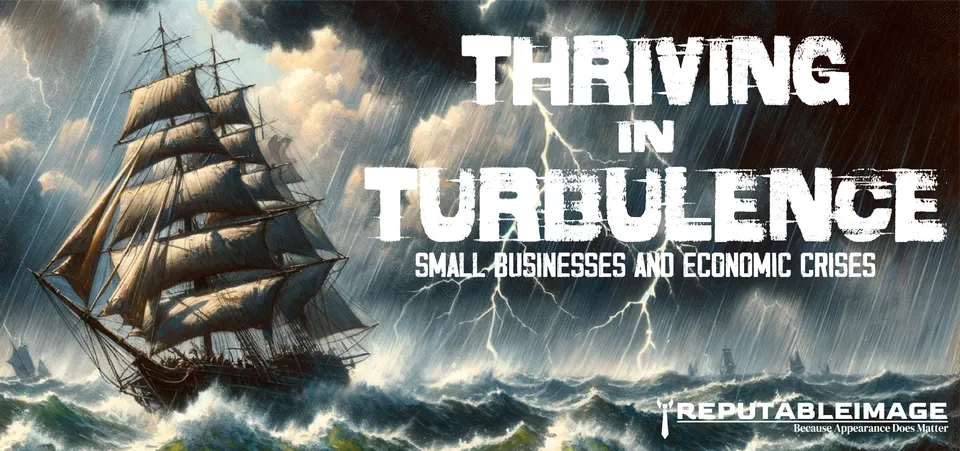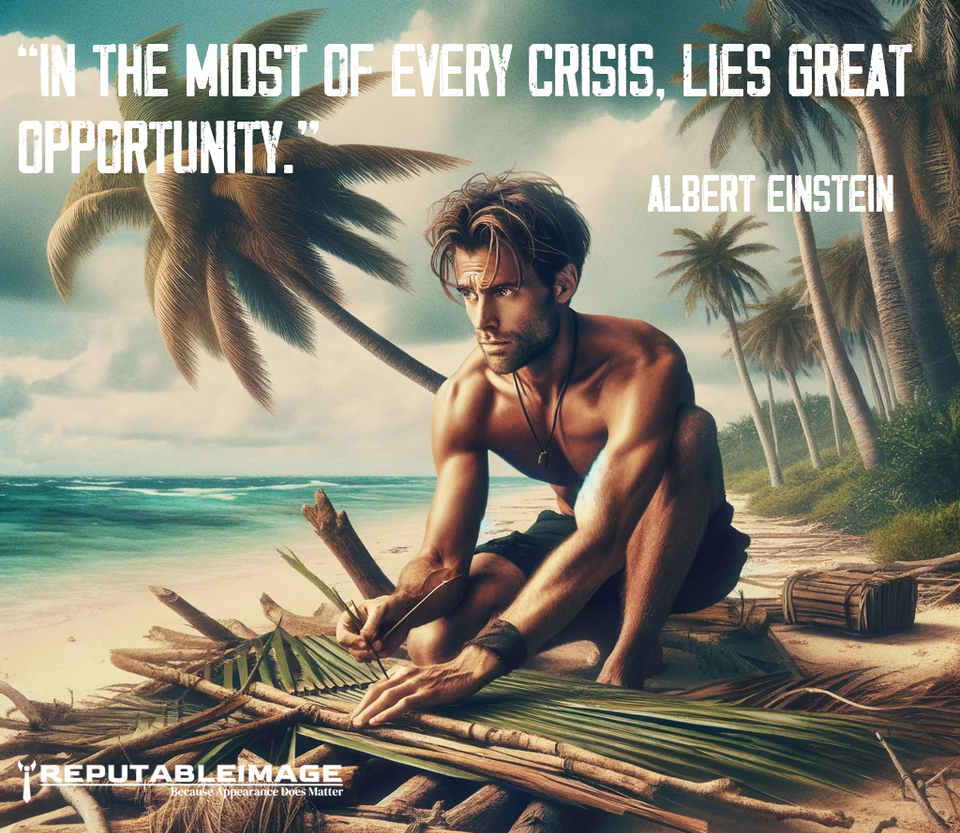
THRIVING IN TURBULENCE:
Small Businesses and Economic Crises
The thought of an economic crisis can keep you awake at night, especially if you are a business owner. Economic downturns are tough for everyone, but they're also full of chances to switch things up and stand out. When money's tight and the economies in a slump, it's all about getting creative and finding new ways to connect with people. An economic crisis means things are pretty shaky - jobs are scarce, and businesses are feeling the pinch. But it's also a time when small businesses can really shake things up, find new opportunities, and maybe even come out stronger on the other side.
Let’s look at the biggest economic calamities of modern times:
The Great Depression (1929): The Great Depression, starting in 1929, was the mother of all economic downturns in the 20th century. Triggered by the stock market crash in the U.S., it quickly spiraled into a global economic slump. Banks failed, businesses closed, and a quarter of Americans were jobless. Governments eventually responded with new policies that reshaped economic theory and practice, but it took a world war to fully pull the global economy out of its deepest ever dive.
OPEC Oil Embargo (1973): In 1973, the OPEC oil embargo threw the world for a loop. Arab oil producers cut off supplies to countries supporting Israel in the Yom Kippur War, causing oil prices to quadruple. This led to severe inflation, long gas lines, and a sharp economic downturn in many oil-dependent countries, especially the U.S. and those in Western Europe.
Asian Financial Crisis (1997): The Asian Financial Crisis kicked off in 1997 when Thailand's currency, the baht, was unpegged from the U.S. dollar, causing it to collapse. The crisis spread like wildfire through Asia, hitting Indonesia, South Korea, and others. Currencies plummeted, stock markets crashed, and debt soared.
Global Financial Crisis (2007-2008): The Global Financial Crisis, starting in 2007, was a massive heart attack in the world's financial system. It began with the collapse of the U.S. housing market and the bursting of the housing bubble, leading to a domino effect where major financial institutions crumbled, stock markets tanked, and the world plunged into a deep recession.
COVID-19 Economic Crisis (2020): The COVID-19 pandemic triggered an economic crisis unlike any other in 2020. With countries going into lockdown to contain the virus, businesses shuttered, unemployment soared, and economic activity nosedived. Governments worldwide injected trillions into their economies to support businesses and individuals, leading to a significant increase in public debt. The crisis accelerated trends towards remote work, digitalization, and highlighted the importance of resilient supply chains and healthcare systems.

Can something be done?
This looks very grim. Yet, with every challenge comes opportunity. As the landscape shifts, small enterprises can find unique ways to adapt, innovate, and even thrive amidst adversity.
Rapid Adaptation and Innovation
The first key to weathering an economic storm is the ability to pivot quickly. For instance, during challenging times, consumer behaviors change—often leaning towards frugality and safety. Recognizing these shifts early can allow small businesses to adjust their offerings to meet new demands. Restaurants and retailers, for example, have turned to curbside pickups and expanded their online presence, catering to customers' preference for convenience and minimal contact.
Focusing on Value and Community
In tough times, customers gravitate towards businesses that offer not just products, but value. Small businesses can leverage this by focusing on high-value offerings and services that resonate with their community's immediate needs. Moreover, engaging with the community through targeted marketing efforts or support initiatives can strengthen customer loyalty and encourage local patronage.
Leveraging Digital Capabilities
Perhaps one of the most significant shifts in recent times is the increased reliance on digital technology. Small businesses that invest in their online platforms and digital marketing strategies can maintain a connection with their customers even when foot traffic diminishes. From e-commerce to social media engagement, the digital realm offers a plethora of tools to keep business operations agile and responsive to market changes.
In an economic downturn, small businesses stand at the crossroads of challenge and opportunity. By embracing adaptability, focusing on delivering exceptional value, and harnessing the power of digital transformation, enterprises can not only weather the storm but also emerge stronger, with new avenues for growth and a deeper connection to their communities. In the heart of adversity lies the potential for innovation, resilience, and a renewed spirit of entrepreneurship that can turn the tides of fortune in their favor.

